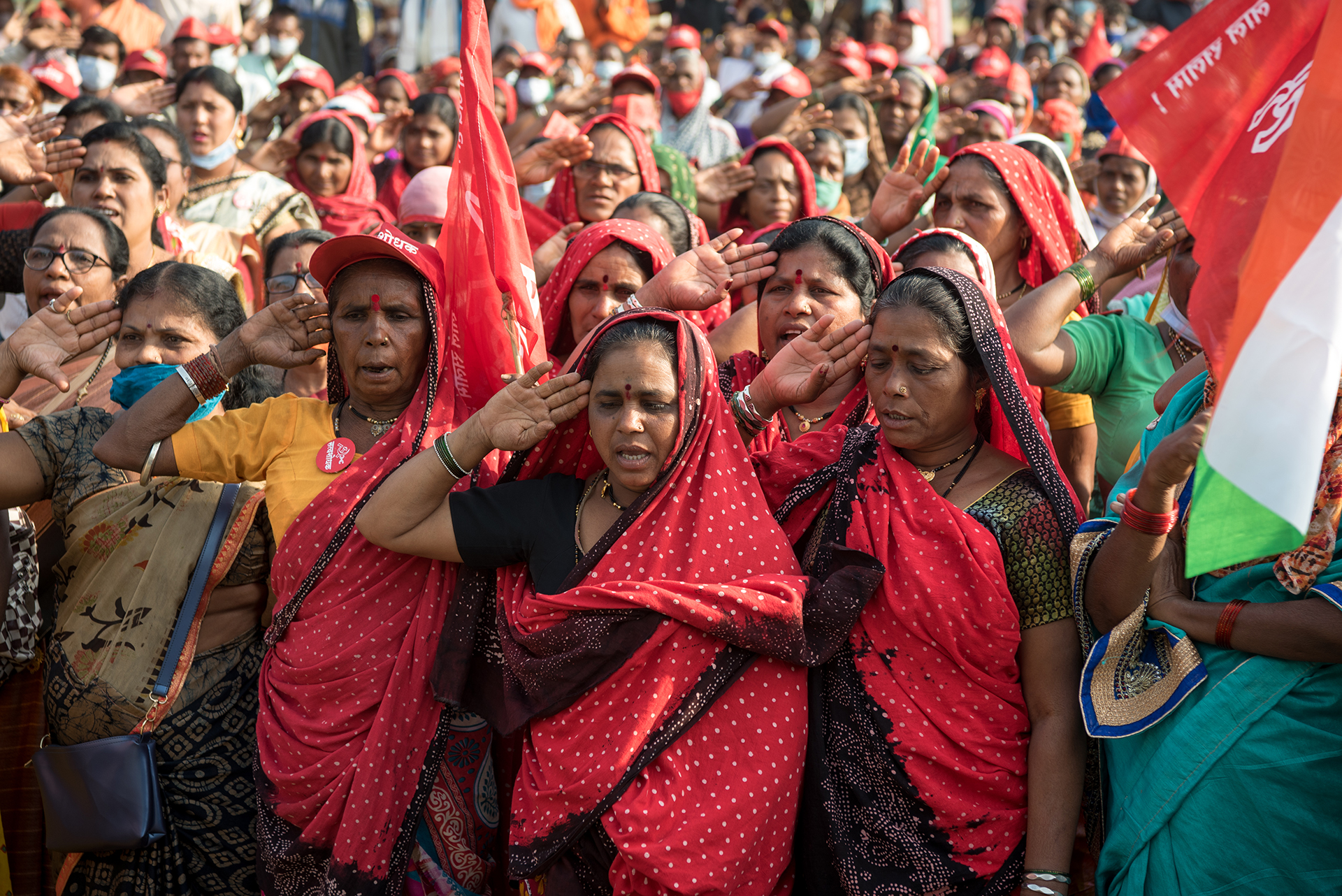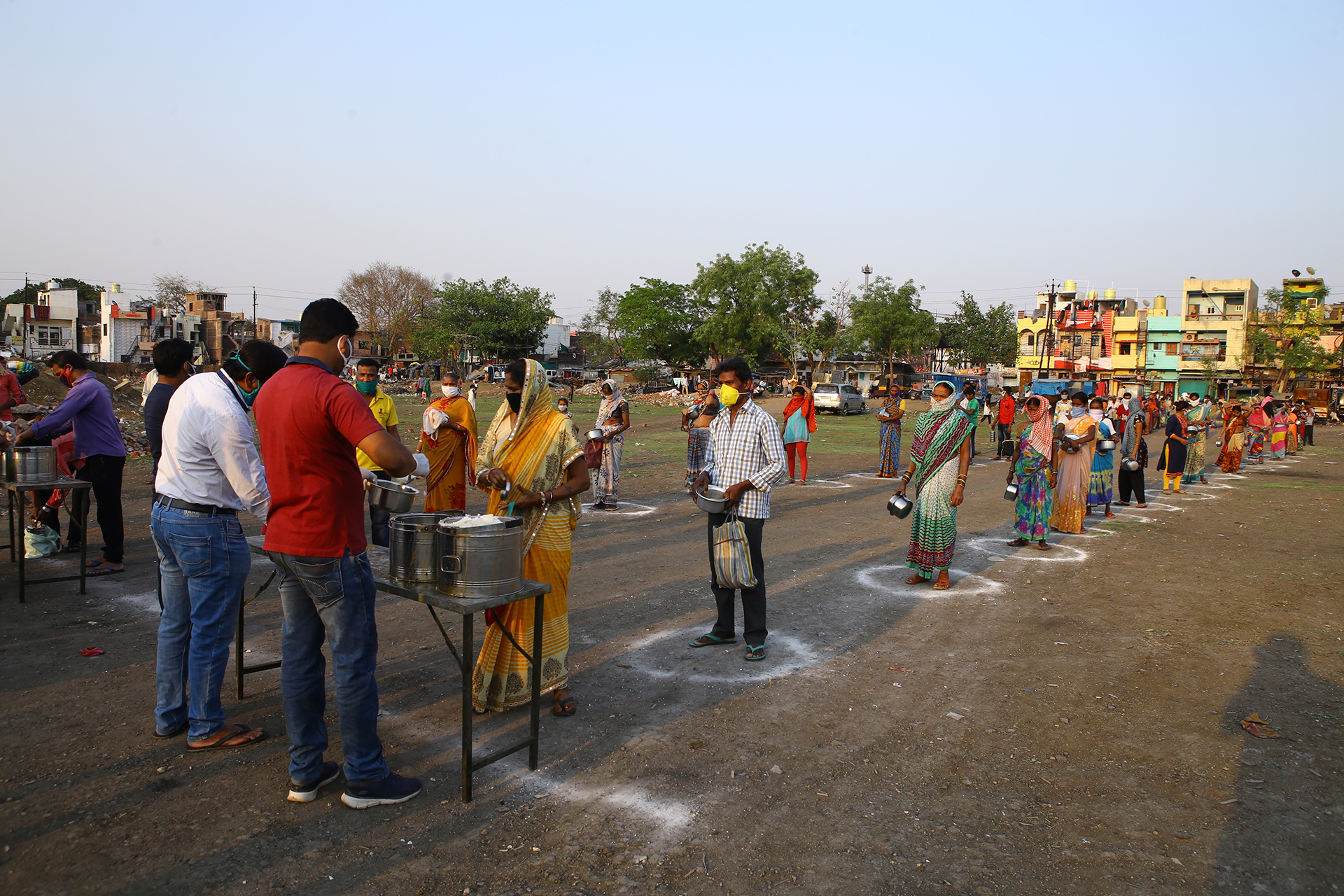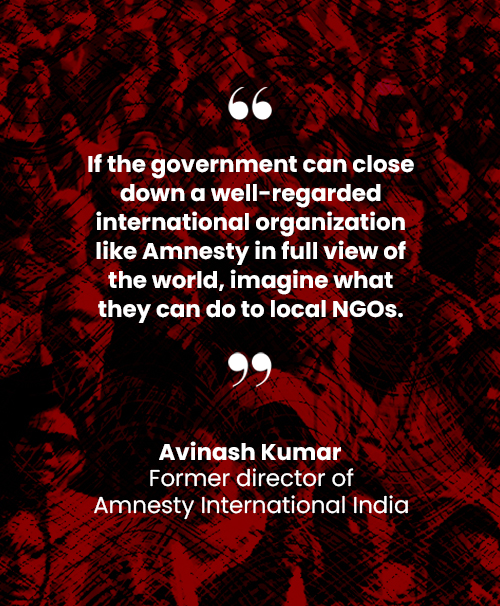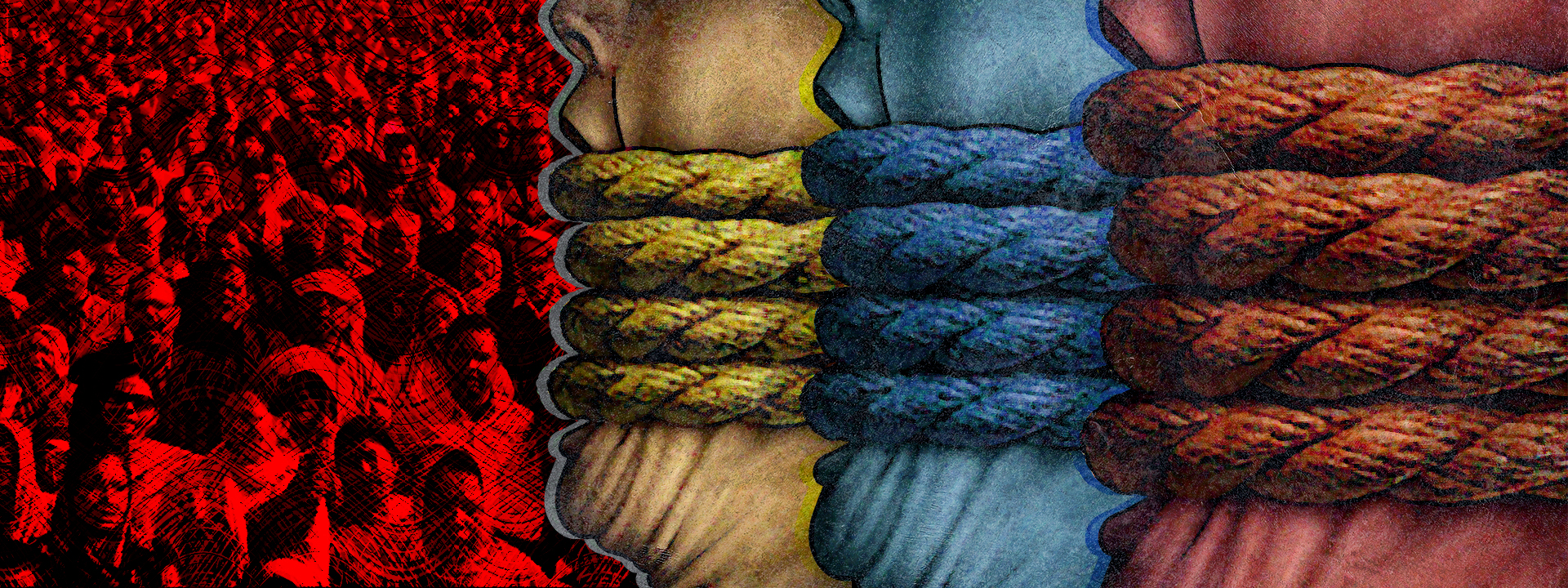Some time last month, journalist Kishorchandra Wangkhem and activist Erendro Leichombam were charged under the National Security Act (NSA) in North East India’s state of Manipur.
Their crime: Stating that cow dung and cow urine were not cures for COVID-19 in social media posts condoling the death of the state’s Bharatiya Janata Party (BJP) chief, S. Tikendra Singh.
On February 13, 2021, 22-year-old climate change activist Disha Ravi was arrested by the Delhi police from Bengaluru on charges of sedition and intent to provoke rioting.
Her crime: Editing and sharing a toolkit explaining the farmers’ protests against the Narendra Modi government over the farm laws passed by Parliament in 2020. It was shared by Greta Thunberg on social media, bringing international attention to the issue.
On January 1, 2021 stand-up comic Munawar Faruqui was arrested due to alleged breaches of several sections of the Indian Penal Code, including 295 A, which outlaws “Deliberate and malicious acts, intended to outrage religious feelings of any class by insulting its religion or religious beliefs.”
His crime: joking about a Hindu deity on YouTube, eight months before being charged.
Unfortunately, these are not stray, isolated cases. In the last five years, activists, academics, and entertainers have faced the ire of authorities in India for dissenting, questioning, and demanding accountability.
Many say that freedom of expression, as guaranteed by Article 19 (1a) of the Indian constitution, is under extreme threat like never before. “Today, anyone who disagrees with the government faces retribution,” observes Delhi-based lawyer and activist Vrinda Grover, who has recently successfully represented veteran journalist Patricia Mukhim in the Supreme Court.
For writing a Facebook post seeking justice for six non-tribal youths allegedly assaulted by tribals in the northeastern state of Meghalaya, authorities booked Mukhim for creating communal disharmony.
Although the Court quashed these charges, saying that “free speech of the citizens of this country cannot be stifled by implicating them in criminal cases,” the steep rise in arrests and lawsuits show just how quickly civic space is shrinking in India.

After the Parliament passed egregious farm laws in late 2020, farmers and peasants all over India rose in protest. When Disha Ravi, a 22-year-old climate change activist, helped bring heighten global attention to the movement, she drew the ire of the Indian government and was arrested on charges of sedition and intent to provoke rioting.
Process as Punishment
Data from the National Crime Record Bureau (NCRB) show that from 2016 to 2019, there has been a rise in arrests and detentions made under laws like Unlawful Activities (Prevention) Act (UAPA) and the NSA.
Both the UAPA and NSA were passed ostensibly in the interest of India’s national security, and help protect it by outlawing activities that either challenge the integrity and sovereignty of the country, as in the case of the former, or threaten public order, as in the latter.
But the NSA allows authorities to detain citizens for up to one year without a trial. The UAPA, a bit more lenient, gives the police 180 days to submit a charge sheet, before which bail cannot be granted. According to NCRB data, 489 people were detained under the NSA in 2019, of whom 210 remained in custody for a year.
Critics call these laws “draconian,” saying that they are at odds with the freedom of speech guaranteed by the Indian constitution. “These laws have been repeatedly used by the state to silence dissent,” says Grover. “Long drawn-out legal cases are a huge deterrent to outspokenness – legal fees, the inconvenience of appearing in court, and the sheer stress of it all is hard to handle.”
Activists and their families who have been charged under these laws attest to how disruptive they can be. On May 9, 2021, Mahavir Narwal, 71, died of COVID-19-related complications without even getting the chance to see his student-activist daughter Natasha, who had been in jail for over a year under UAPA, for her alleged role in the 2020 Delhi riots.
Before her arrest, Natasha had been deeply involved in the nationwide protests against the Citizenship Amendment Act, which allows non-Muslim migrants escaping religious persecution in their home countries to become Indian citizens, while remaining silent on the fate of Muslim immigrants.
Although Natasha and her associate Devangana Kalita have pleaded innocence, their bail pleas have been continuously been dismissed.
Repression through other rules
But the law isn’t the only way by which the government keeps its people quiet. Smaller non-governmental organizations (NGO) point out that that a common punishment for them speaking out is tighter state scrutiny of their records and finances.
“We find that income tax queries are often used for their sheer nuisance value,” says the founder of a Delhi-based NGO, who spoke on the condition of confidentiality. “We’re so short-handed at the best of times, that even if we’re able to prove no wrongdoing, the extra effort of the many trips to the chartered accountant and to the Income Tax office is huge!”
Others say that the very public departure of Amnesty International from India in 2020 has served as a cautionary tale to local NGOs. Their troubles started in July 2019, when the Enforcement Directorate of India served a show-cause notice to Amnesty International India for allegedly violating the country’s foreign exchange law.

As the COVID-19 pandemic ravages India’s economy, NGOs have swung into action, providing the poor and hungry with food and other types of assistance. But the Indian government, instead of helping, has sometimes even tightened the noose around NGOs, ramping up scrutiny of their activities and finances as a way to cow them into obedience.
“Being the subject of investigations by Enforcement Directorate and Central Bureau of Investigation, having our bank accounts frozen, paying hefty legal fees, and the constant threat posed by state surveillance made it impossible for us to work in India,” says Avinash Kumar, former director of Amnesty International India.
Their funding took the hardest blow. “Within two years, all our major donors (who’ve donated over USD 6,858) backed out,” he recalls.
On September 10, 2020, Amnesty International India came to know that all its bank accounts had been completely frozen by the Enforcement Directorate. Unable to pay salaries and office rent, the human rights organization was stopped in its tracks.
“It is a dismal day when a country of India’s stature, a rising global power and a member of the UN Human Rights Council, with a constitution which commits to human rights and whose national human rights movements have influenced the world, so brazenly seeks to silence those who pursue accountability and justice,” the group wrote in a press release, blaming reprisal from the government for whom the human rights watchdog had become somewhat of an inconvenience
Civil society observers believe that the timing of the freezing of Amnesty’s bank accounts was anything but coincidental. “Our accounts were frozen in August 2020, around the same time that we published reports on Kashmir and the riots in northeast Delhi which showed the government’s neglect of human rights issues,” says Kumar.
Shutting down high-profile organizations has far-reaching consequences and sets a dangerous precedent. “The message to civil society is clear – if the government can close down a well-regarded international organization like Amnesty in full view of the world, imagine what they can do to local NGOs!” says Kumar.
Such cases also deter young people from careers in civic activism by showing them how difficult the government can make their lives.
Shooting the messenger
Data from the National Campaign for People’s Right to Information, a nationwide network of organizations and individuals who use the Right to Information law to demand transparency and accountability from the government, show that the truth is punishable in India.
With a database dating as far back as 1998, the group has found that over 200 whistle-blowers have been harassed, 163 were physically assaulted, and close to 100 were killed for speaking truth to power.
India’s Whistle Blowers Protection Act (WBPA) of 2014, ironically, does little by way of protecting whistle-blowers. The Act neither allows the anonymous disclosure of acts of corruption, misuse of power, or criminal offenses, nor does it provide mechanisms to guarantee the safety of the person blowing the whistle.
In 2009, Ashish Chaturvedi, from Madhya Pradesh, found out just how unfair the situation could become.
 As he accompanied his mother to hospitals for her cancer treatment, Chaturvedi, still a student at the time, was appalled by the shoddy standards of medical practice in the state. Seeking to compare the admission forms with answer scripts of all the successful candidates in the 2009 medical entrance examination, he filed a query under the Right to Information Act of 2005.
As he accompanied his mother to hospitals for her cancer treatment, Chaturvedi, still a student at the time, was appalled by the shoddy standards of medical practice in the state. Seeking to compare the admission forms with answer scripts of all the successful candidates in the 2009 medical entrance examination, he filed a query under the Right to Information Act of 2005.
One thing led to another and Chaturvedi’s query eventually became partly instrumental in uncovering the infamous Vyapam Scam, in which the final results of 13 exams for the selection of medical students and state government employees in Madhya Pradesh were found to be rigged.
“Instead of commending my role in unearthing this scam, the state has caused my social murder,” Chaturvedi alleges.
Since 2009, he and his family have been assaulted several times, had to appear in court and police stations many times every month, and become social outcasts.
“I’ve been unable to find a job for years,” he says, claiming that his community and most importantly, prospective employers, have distanced themselves because he’s on the state’s radar.
“Seeing my situation, who would want to unearth corruption and demand the truth?” he asks.
Activists have long been arguing for the WBPA to be amended in order to protect the identities of individuals like Chaturvedi. Similarly, they have also been calling on the state to revoke colonial-era legislation like UAPA and NSA, as well as the country’s law against sedition, famously described by Mahatma Gandhi as the “prince among the political sections of the Indian Penal Code designed to suppress the liberty of the citizen.”
Until there are legal deterrents to filing malicious cases, says activist Grover, “we will continue to lack a robust system protecting freedom of speech in India today.” ●
Geetanjali Krishna is the co-founder of The India Story Agency, which specializes in telling human interest, environmental, and social affairs stories and case studies from South Asia to the world. Her recent bylines can be found in the Business Standard, where she is a contributing editor, as well as the Times, British Medical Journal, BBC, and Footprint magazine.



















